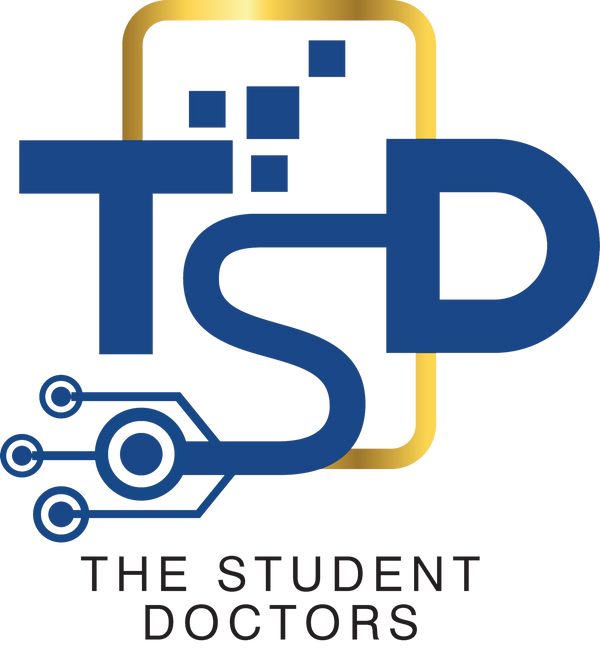
Beyond the Bachelor's: Your Empathetic Expert Guide to Doctoral Studies
Share
Beyond the Bachelor’s: Your Empathetic Expert Guide to Doctoral Studies

The journey through higher education is often filled with pivotal decisions, and for many ambitious students, the path doesn’t end with a bachelor’s degree. The allure of doctoral studies—whether it’s the rigorous intellectual pursuit of a PhD, the profound impact of a medical degree (MD), or the intricate world of law (JD)—beckons with promises of deeper knowledge, specialized expertise, and significant career opportunities. But stepping into this advanced academic realm can feel daunting, shrouded in myths and complex application processes. As your empathetic expert, we’re here to demystify the landscape of doctoral studies, offering clear, jargon-free guidance to help you navigate this exciting, yet challenging, next chapter.
This guide is designed for aspiring medical students, future lawyers, and those considering the academic rigor of a PhD. We understand the unique pressures and aspirations that drive you, and our aim is to provide actionable insights, demystify the application process, and help you prepare for the demanding yet rewarding journey ahead. We’ll explore key considerations, common pitfalls, and strategies for success, all while maintaining a supportive and encouraging tone.
Understanding the Doctoral Landscape: More Than Just Advanced Degrees
Doctoral studies represent the pinnacle of academic achievement, but they’re far more than just extended undergraduate programs. Each type of doctoral degree serves distinct purposes and leads to different career trajectories. Understanding these differences is crucial for making an informed decision about your future.
Medical School (MD/DO):
Medical education is fundamentally about preparing compassionate, competent physicians who can diagnose, treat, and care for patients. The curriculum combines rigorous scientific study with hands-on clinical experience. Medical school typically spans four years, followed by residency training that can last anywhere from three to seven years, depending on your chosen specialty. The path is demanding but leads to one of the most respected and impactful careers in healthcare.
Law School (JD):
Legal education focuses on developing critical thinking, analytical reasoning, and advocacy skills. Law school is typically a three-year program that combines theoretical study with practical application through clinics, internships, and moot court competitions. Graduates can pursue careers in private practice, public service, corporate law, or academia. The legal profession offers diverse opportunities to advocate for justice and navigate complex societal issues.
Graduate School (PhD):
Doctoral programs in various fields are research-intensive endeavors designed to produce independent scholars and researchers. PhD programs typically take four to seven years to complete and culminate in original research that contributes new knowledge to your field. Graduates often pursue careers in academia, research institutions, government agencies, or specialized roles in industry.
Quick fit guide:
- MD/DO: Science aptitude, patient-care passion, resilience.
- JD: Analytical thinking, persuasive writing, advocacy.
- PhD: Deep curiosity, independence, tolerance for ambiguity.
Is Doctoral Study Right for You? A Self-Reflection Guide
What truly motivates you? Is it a deep-seated curiosity, a desire to contribute new knowledge, a calling to serve, or a specific career aspiration that requires a doctoral degree? Pure prestige or parental pressure are rarely sustainable motivators for such an intensive undertaking.
Are you prepared for the rigor? Doctoral programs involve extensive research, critical thinking, and often long hours of study or clinical work. Medical school requires mastering vast amounts of scientific information while developing clinical skills. Law school demands reading hundreds of pages weekly and thinking analytically about complex legal issues. PhD programs require independent research and the ability to handle ambiguity and setbacks.
What are your long-term career goals? Research the career paths associated with your desired doctoral degree. Do they align with your vision for your future? Shadow professionals, conduct informational interviews, and gain hands-on experience to ensure your expectations align with reality.
Have you gained relevant experience? For medical school, clinical experience through shadowing, volunteering in healthcare settings, and research are often crucial. For PhDs, research experience is paramount—many successful applicants have published papers or presented at conferences. For law school, experiences that demonstrate analytical thinking, writing skills, and understanding of legal issues are valuable.
Are you ready for the financial commitment? Doctoral programs can be expensive, and the opportunity cost of several years out of the workforce is significant. Understanding the financial landscape upfront is vital for making an informed decision.
Navigating the Application Maze: Common Threads and Unique Paths
Academic Transcripts: Your undergraduate academic record is foundational. Strong grades—especially in relevant coursework—demonstrate your ability to handle rigorous academic demands. If you have any academic weaknesses, address them proactively in your application materials.
Standardized Tests: MCAT (MD/DO), LSAT (JD), GRE (many PhDs). While scores aren’t everything, strong performance can significantly strengthen your application.
Letters of Recommendation: Choose recommenders who know you well and can speak to your strengths relevant to doctoral study.
Personal Statement: Tell your story, articulate your motivations, and tailor each essay to the institution and program. Show—don’t just tell.
Extracurricular Activities and Experiences: Align your experiences with your target degree (clinical/community service & research for MD/DO; internships/advocacy for JD; publications/teaching for PhD).
The Medical School Journey: Healing as a Calling
Prerequisites and Preparation: Biology, chemistry, physics, mathematics, and often psychology/sociology/English. Clinical experience and research exposure are essential.
The MCAT Challenge: A comprehensive exam requiring months of focused study. Time your test to fit your application cycle.
Application Process: AMCAS primary, school-specific secondaries, then interviews (traditional or MMI).
Financial Considerations: Understand tuition and debt realities; explore aid and forgiveness options.
The Legal Path: Advocating for Justice
Undergraduate Preparation: No fixed prerequisites; build analytic reading/writing skills across disciplines.
The LSAT Imperative: Heavily weighted—invest in high-quality practice and diagnostics.
Application Strategy: Apply via LSAC; compelling essays and targeted school selection matter. Leverage clinics and internships once enrolled.
The PhD Path: Pursuing Knowledge and Discovery
Research Experience: Seek labs early; aim for posters, presentations, or publications when possible.
Choosing a Field and Program: Align with advisors whose work matches your interests; mentorship quality is critical.
Funding and Financial Support: Many programs offer RA/TA/fellowships that cover tuition and provide a stipend.
The Dissertation Journey: A multi-year, original research project requiring independence and perseverance.
Building Your Application: Strategies for Success
- Start Early: Plan 18–24 months ahead for coursework, experiences, and tests.
- Gain Relevant Experience: Choose activities aligned to your target degree.
- Develop Strong Relationships: Cultivate recommenders over time.
- Craft Compelling Narratives: Thread a coherent story across your materials.
- Research Programs Thoroughly: Look beyond rankings—consider curriculum, culture, mentorship, outcomes.
- Prepare for Standardized Tests: Use timed practice and targeted review.
- Consider Timing: Leverage rolling admissions or early options when appropriate.
Overcoming Common Challenges and Setbacks
Academic Challenges: Show upward trends; consider post-bacc or targeted coursework to strengthen your record.
Test Score Concerns: Retake with a plan; focus on high-leverage weaknesses.
Limited Experience: Add exposure—volunteer, shadow, research, or internships—and reflect on impact.
Financial Constraints: Research aid, scholarships, and cost-effective program options.
Rejection and Reapplication: Calibrate, strengthen, broaden your list, and try again.
The Road Ahead: Preparing for Success in Doctoral Studies
Develop Independence: Manage time, set milestones, and own your learning.
Build Professional Networks: Faculty, peers, conferences, and professional organizations.
Maintain Work-Life Balance: Sustainable habits and support systems are strategic advantages.
Stay Flexible: Interests evolve—your skills are transferable.
Doctoral study is a marathon, not a sprint. Pace yourself, find good mentors, and keep sight of your “why.”
Conclusion: Your Journey Begins Now
The path to doctoral studies is challenging but immensely rewarding. Whether you’re drawn to the healing arts of medicine, the intellectual rigor of law, or the discovery-driven world of research, doctoral education offers the opportunity to develop expertise, make meaningful contributions, and pursue careers that align with your deepest values and interests.
Remember: Your path is uniquely yours. Be patient, seek support, and stay focused on your long-term goals—the world needs passionate, well-trained professionals ready to make a difference.
Ready to take the next step in your academic journey? Explore our comprehensive resources and tools designed to support aspiring doctoral students through every stage of the application process and beyond.
